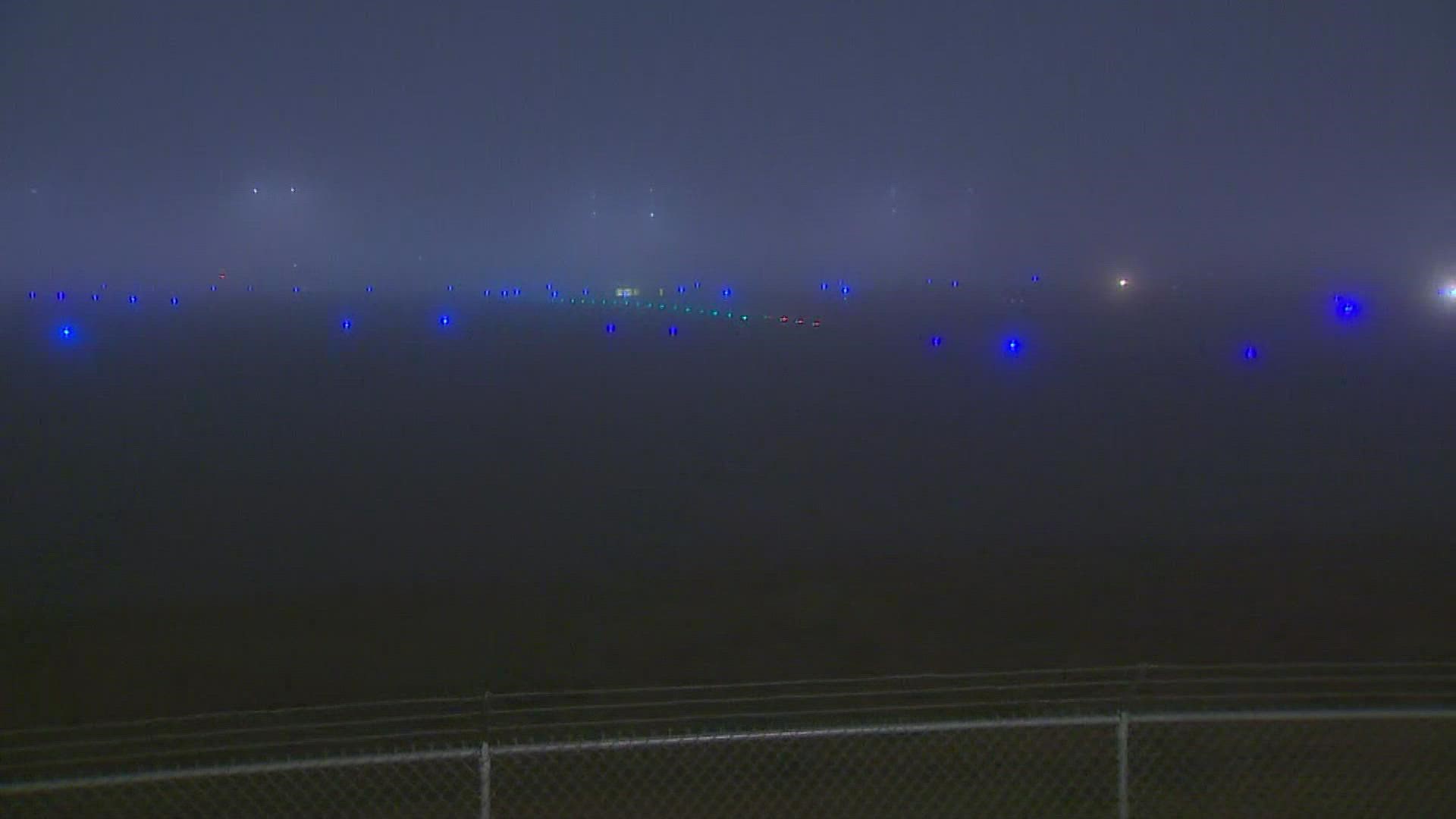EVERETT, Wash. — Alaska Airlines is warning customers that some flights to and from Everett's Paine Field were being delayed or canceled on Monday and Tuesday due to fog and new restrictions connected to 5G wireless service.
The new 5G signals can interfere with flight technology used to navigate aircraft, especially in difficult weather and low-visibility situations, airline representatives have warned. The Federal Aviation Administration (FAA) issued flight restrictions that limits what aircraft can land in certain weather due to the potential impacts of 5G.
Paine Field tweeted a brief statement Monday night:
"Unfortunately, our hometown carrier has had to cancel flights due to 5G and weather. Please check your flight status with @AlaskaAir before heading out to Paine Field this week. This is out of our control, and we are as frustrated as you are.
"Be assured that we are working with appropriate authorities on local and federal levels, along with our partners at Snohomish County, to assist in bringing this situation to a resolution as soon as possible."
Though Alaska's Boeing and Airbus aircraft were cleared for low-visibility landings by the FAA, the airline says some regional jets, including the Embraer E175, have not been cleared at certain airports and remain subject to the restrictions. The E175 jets are flown by Alaska's sister carrier Horizon Air and partner SkyWest.
Alaska said a flexible travel policy is in effect for impacted guests through Jan. 27, which allows travelers to change or cancel their travel arrangements.
Aviation regulators and airline officials are concerned that 5G service near airports could interfere with altimeters, which measure an aircraft’s height above the ground. Data from altimeters is used to help pilots land when visibility is poor. The devices operate on a portion of the radio spectrum that is close to the range used by the new 5G service, called C-Band.
The FAA has approved two radio altimeter models that are used in a wide variety of Boeing and Airbus planes. Even with the new low-visibility approvals, the FAA warned that flights at some airports may still be affected.
Airlines want the new service to be banned within two miles of airport runways.
"We know this situation is frustrating and disruptive to those impacted and we’re asking the government to ensure an effective, safe, reliable and sustainable solution to get all our aircraft back to normal operations," an Alaska spokesperson said in a statement Tuesday.
Last week, AT&T said it would delay turning on new cell towers around runways at some airports — it did not say how many — and work with federal regulators to settle the dispute.
Verizon said it will launch its 5G network but added, “we have voluntarily decided to limit our 5G network around airports." The company blamed airlines and the FAA, saying they “have not been able to fully resolve navigating 5G around airports.”
AT&T and Verizon say their equipment will not interfere with aircraft electronics, and that the technology is being safely used in many other countries.

